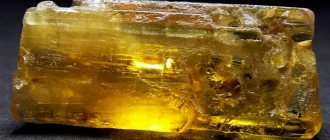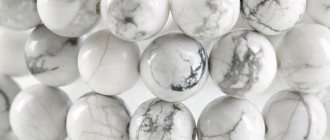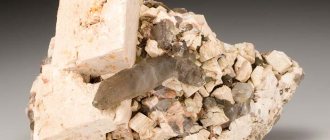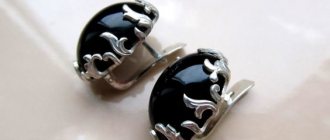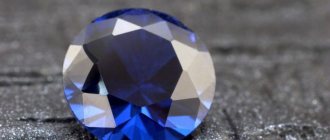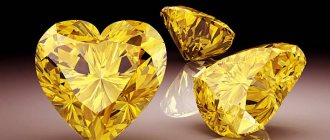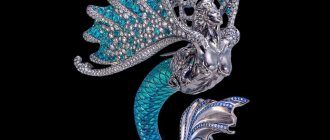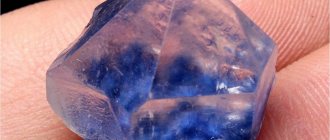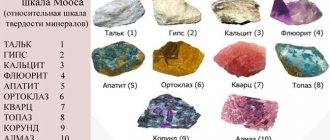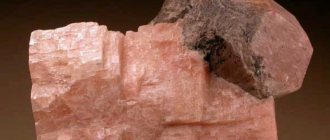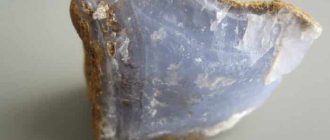Heliodor is a stone that is distinguished by its extraordinary purity and high quality crystals. It belongs to the category of precious gems and is comparable in value to diamonds, sapphires and rubies. In appearance, heliodor resembles sparkling sun rays. In addition, it has magical and healing properties.
Heliodor is a stone that has a beautiful yellow color.
What is
Heliodor is a beautiful shiny mineral of the solar range. In nature, they look like regular prism crystals. The palette of shades begins with light gold and ends with darkish honey. This is determined by the amount of impurities in the composition.
Color is always mentioned when describing a stone.
According to the mineralogical classification, heliodor stone is a type of beryl. The relationship is evidenced by a common basic formula.
However, gemologists have no unity regarding identification:
- Any yellow-golden beryl can be correctly considered heliodor.
- Others are sure: for yellow beryl to qualify as heliodor, it must contain a greenish tint (created by an admixture of iron in the composition).
- Adding to the confusion are light emeralds from the Pamirs (Afghanistan, Pakistan, Tajikistan). They are also mistaken for beryl. It is not for nothing that Pliny the Elder in his “Natural History” mentions heliodor as the Chalcedonian emerald.
At the domestic and commercial level, such subtleties are not taken into account. All transparent beryls of yellow tints are labeled as heliodors.
How the name came about
There is no unity with the name of the mineral:
- The ancient Greeks were sure that the golden stone was created by their sun god Helios. They studied and applied its magical properties. And Europeans christened the golden mineral at the beginning of the 20th century (1910) in honor of this god.
- However, later the French-speaking community caught echoes of the word “golden” (d'or in French) in the name. This is how the second name of the stone appeared - golden beryl.
- Marketers created the English-language tracing-paper term “goldenberyl” (golden beryl).
A similar name for the stone was used in Ancient Rus' - golden emerald. Heliodor stone was also called Livirion.
STRUCTURE
Crystal structure of beryl. Two large purple atoms are beryllium, three small purple atoms are aluminum, beige are silicon, red are oxygen atoms
The crystal structure of heliodor is similar to that of beryl. The system is hexagonal, dihexagonal-dipyramidal type of symmetry L6 6L2 7PC. The crystal structure is of exceptional interest.
In the crystal structure of heliodor, octahedral [Si6O18] rings are located on top of each other, forming hollow channels. The rings are interconnected by beryllium and aluminum atoms, and the channels can accommodate non-structural impurities in the form of alkali metal anions and water molecules.
Be are located between ring radicals, but not on the same level with them, but between layers of rings. Thus, the crystal lattice as a whole is connected by both lateral and vertical bonds. Al ions are in a sixfold environment, and Be ions are in a fourfold environment of oxygen ions. Be2+ ions closely bind ring radicals into a common strong core. It is characteristic that in each unit the rings of radicals located one below the other have a large free channel inside. Large ions such as Na1+, K1+ and Cs1+, as well as H2O, sometimes present in beryl, are located precisely in these channels.
Story
The golden stone couldn't help but attract people's attention.
It was used as a magical artifact and decoration pleasing to the eye:
- The ancient Egyptians made beads from it for necklaces. And primordial crystals, as a symbol of the Sun, were placed in the tombs of pharaohs and generals, so that they would have light in the next world.
- The sorcerers of the Near and Middle East considered African heliodors to be a shield against evil spirits. In secular life, stones acted as a guarantor of the prosperity of the family. Such attributes were mandatory for every noble family.
- The heliodor stone was considered a symbol of wealth and prosperity at the court of Chinese emperors. Only residents of the Forbidden City were allowed to have the golden gem.
- In Rus', a stone was placed under the pillow so that nothing bad would be seen.
We recommend: LARIMAR - the legacy of Atlantis, the legend of the Dominican Republic
Indian maharajas even today replenish their caskets with faceted helidors. Here they coexist with diamonds, emeralds, rubies, and sapphires.
MORPHOLOGY
Heliodorus from the collection of the Natural History Museum in Frankfurt am Main. Crystal size 20 mm. Found in Russia, Sverdlovsk region, Sarapul district, Murzinskaya mine
Heliodor crystals have a columnar or prismatic appearance and are usually well formed. As a rule, the prism {1010} and pinacoid {0001} are developed. The {1121}, {1011} and {1120} prism faces are represented to a much lesser extent. The edges of the prisms are often covered with vertical streaks. No duplicates have been identified; or rather, the patterns of the sometimes observed fusions of individuals have not been studied. Usually found in the form of single disseminated crystals, sometimes united into druses. Occasionally, columnar aggregates of solid masses are installed.
Physico-chemical parameters
For a chemist, the mineral heliodor is a complex silicate.
| Formula | Be3Al2Si6O18 |
| Physical properties | |
| Color | Golden yellow |
| Stroke color | White |
| Shine | Glass |
| Hardness | 7,5-8 |
| Cleavage | Imperfect |
| Kink | Uneven, conchoidal |
| Density | 2.8 g/cm³ |
| Crystallographic properties | |
| singonia | Hexagonal |
When heated to 400°C it becomes aquamarine - blue and transparent. This property of heliodor is used to refine medium-grade stones.
Description and external signs
Heliodor, which translated from Greek Heliodor means “Gift of the Sun,” is commonly called a variety of beryl stone. These include beryl of lemon, green, yellow, red-yellow shades. Transparent heliodor is also mined in nature, and its price is several times higher than its opaque counterparts.
A unique copy of this gem is kept in the Washington Museum. Its weight is 2054 carats.
The St. Petersburg Museum also boasts its own exhibit - a transparent 20-centimeter heliodor. It was found in one of the Ural deposits. This mineral is considered the most beautiful specimen of all precious stones.
What does the mineral look like? Heliodor is usually transparent. But the degree of transparency may vary. If the mineral is completely opaque, then its cost is minimal.
What jewelry connoisseurs value most is the perfect transparency of this gem.
Heliodor can take on various yellow shades. The most popular stones are golden in color, as well as those with rich and bright colors. The color of such a mineral is almost always uniform, with rare exceptions. There are yellow specimens with blue edges. It is quite rare to find a specimen that combines different shades. It’s simply impossible to take your eyes off such a stone, so connoisseurs shell out crazy amounts of money for such unique masterpieces.
Externally, heliodor is similar to citrine. But they have different optical properties, so experts can easily distinguish these two minerals. But amateurs need to carefully study the stones, since beryl has specific defects. Upon careful examination of heliodor, thin white inclusions can be identified, which indicates its authenticity.
Place of Birth
The source of heliodors is deposits created by hydrothermal processes and the voids of pegmatite veins.
The stone is mined in several regions of the planet:
- Sri Lanka;
- Madagascar;
- Namibia;
- Argentina;
- Brazil;
- USA.
Here are the richest deposits.
92% of jewelry grade heliodors come to the market from Brazil.
Russian deposits - Siberia and Transbaikalia. Ural heliodors are no larger than 6 cm, Transbaikal heliodors are three times larger.
ORIGIN
Heliodor monocrystal. Length 4.2 cm. Ukraine, Zhytomyr region, Volodarsk-Volynsky
Heliodor is formed in granitic pegmatites, greisens, skarns, pneumatolytic and hydrothermal deposits of the metasomatic type. Most often found in pegmatite veins among acidic intrusive rocks or in wall rocks among reaction-metasomatic formations in a genetic connection with pegmatites. It is also observed in granites modified by pneumatolytic processes - greisens, less often in voids among granites themselves in paragenesis with minerals containing volatile components. Deposits of heliodor are often complex: in pegmatites, together with heliodor, rock crystal, smoky quartz, morion, topaz, and feldspar are of industrial importance. Associated with rare metal paragenesis are: beryl, amazonite, lepidolite, tantaloniobates, tourmaline-rubellite.
While most varieties of heliodor are usually confined to pegmatites and are associated there with feldspar and quartz, emeralds are found in contact-metamorphic deposits in specific schists called mica. In association with heliodor, in addition to feldspars, mica and quartz, the following are often observed: topaz, tourmaline, fluorite, sometimes phenacite, chrysoberyl and alexandrite, wolframite, cassiterite and some sulfides (arsenopyrite, molybdenite, etc.). As a chemically stable mineral, during weathering and erosion of bedrock deposits it turns into placers, where it is sometimes found in the form of rounded crystals or pebbles.
There are known deposits of heliodor in Argentina, Brazil, Ukraine, Russia, Namibia, and Madagascar.
Heliodorus uniques
Over centuries of mining, a collection of specimens of outstanding condition has been compiled:
- Number one faceted beryl – gold (La Dorada). Among the Indians of pre-Columbian America it was a cult object and was called the “Eye of the Sun”. Today it is an exhibit of the collection of the Louis XV jewelry house (87 carats).
- A transparent emerald crystal 19.8 cm high. Delivered from the mines of the Urals to the Museum of the Mining University (St. Petersburg).
- Giant stone – 10.5 cm; 2053.9 carats - from Brazil ended up in the Smithsonian Institution (Washington).
- Crystal from Minnesota (USA) – 133.8 carats.
Once upon a time, transparent giant stones with a greenish tint (100 carats after cutting) were found in Volyn (Ukraine).
Sunstone colors
The main shades of beryl associated with the sun:
- yellow;
- ginger;
- citric;
- reddish yellow;
- greenish yellow.
The most valuable varieties of stone are those reminiscent of gold in color. Samples painted in wheat, honey, and dark yellow colors are suitable for decoration.
The most common varieties are lemon and greenish-yellow.
The rarest varieties combine several shades. Each crystal is unique, so the cost is calculated individually.
Honey colored jewel
Where is it used?
The mineral of sunny shades is shared by jewelers and collectors of mineralogical collections.
Jewelry
Jewelers love heliodor: it is beautiful, dense, affordable, and easy to process.
In jewelry, the most valuable are those with a greenish tint: lemon-yellow, green-yellow, orange.
Ring with heliodor
It is “exploited” by first-line jewelry houses. This is the main stone of the Paris Vu Du 26 collection, created by the masters of the Boucheron house.
We recommend: BUYING A DIAMOND wisely
Collecting
Collectors are interested in rare species:
- Concentrically colored specimens are blue on the edges and yellow on the inside.
- “Multi-layered” with layers of different shades.
Material from Transbaikalia is available. Sherlovaya Gora supplies small, but exceptionally transparent and pure crystals.
Price
The most expensive heliodors are transparent, with a pure golden hue. Their world price is not lower than $20 per carat .
The cost of yellow stones with a grayish tint is much less than yellow ones with a greenish tint.
It is better to buy jewelry with heliodor or collectible material from sellers with a good reputation in order to be sure of the radiation safety of the stone.
You can buy this mineral not only in jewelry stores, but also in online stores. Price examples:
- ring (925o silver) — RUB 19,700. ;
- heliodor (yellow beryl), organ (pair) 12 x 12 x 7 mm - 42,000 rub .
How to identify a fake
Under the guise of heliodor, they offer cheaper citrine, quartz or an artificial analogue and glass.
To distinguish the original from the fake, the sample is examined against the light:
- In the thickness of natural heliodor, tubules located along the axis and inclusion fragments resembling snowflakes are visible.
- Citrine and quartz do not have such signs.
- In glass, inclusions look like round bubbles.
Only a jeweler using special equipment can identify the artificial origin of a stone.
How to care
Caring for the stone is easy.
There are only two properties of heliodor that need to be taken into account – burnability and fragility:
- Keep away from direct sun. Heliodor fades on it.
- Don't drop it. Internal microcracks can cause the stone to split.
Dirt is removed with warm water and soap and a couple of drops of ammonia. Rinse and immediately wipe dry to avoid streaks forming on the surface.
You can store heliodor products in a common box.
Treatment options
Over centuries of use, healers have studied the healing properties of the mineral:
- The stone heals the pancreas, liver, spleen, bladder.
- Inhibits oncology, especially gynecological (uterus, ovaries).
- Applied to the temple, it dissolves migraines and headaches.
- Normalizes metabolism and heart function. How is it useful for people with limited mobility?
- Promotes easy pregnancy and childbirth.
Heliodor increases blood pressure, therefore it is indicated for hypotensive patients, but is prohibited for hypertensive patients .
The stone is useful for a physically healthy person if he has nervous, intense work.
Magic properties
The sun-colored stone emits positive energy.
Its magical properties help to realize sublime and mundane dreams:
- Makes a person happy, a successful optimist. Develops the best in the owner.
- The magic of the stone cuts off external negativity (evil eye, envy, magical attacks), dissolves internal negativity (dissatisfaction with oneself, depression).
- Heliodor decoration makes the owner the center of communication in the company.
- A golden gem is an attribute of businessmen. He is hired to negotiate and conclude a deal.
- This is an assistant to careerists striving for the very heights.
- It attracts money, helping you get rich.
- The significance of the stone was appreciated by married couples. In a house where there is heliodor, there will be no scandals, betrayals, or omissions.
- “Suggests” to the owner his purpose, his life’s work.
- Helps to recognize lies on the part of the interlocutor.
- As a gift it is suitable for a workaholic, a shy person or a pathological jealous person.
- Yoga adherents choose it as an object of meditation.
You should not wear or use the stone constantly. This will result in frivolity and loss of life guidelines.
A golden gem is a talisman for people in “social” professions. It is worth hiring for executives, teachers, salespeople, managers, call center workers, and doctors. And also for solo travelers, so as not to get lost and avoid bad people.
We recommend: What kind of stone is SPINEL, types and properties
Heliodor by Zodiac
Sunstone has its own favorites:
- A piece of heliodor in gold will make Lviv softer, calmer, and more tolerant. They will calmly listen to criticism and advice, and will become more lenient.
- Gemini will gain confidence, stop rushing about, and tormenting themselves with doubts.
- Pisces will be left with terrible dreams. In return, new strength, energy, and positivity will come.
- Silver jewelry suits Libra. Representatives of this zodiac sign will become wiser and will cope with nervousness and stress without problems.
The influence on other zodiac signs is also positive. Especially if the owner is a creative person.
Who to wear: names for contact
The gem is especially favorable to active, sociable people. He is able to activate these qualities even in a shy person. The mineral is considered suitable for wearing among people who have to communicate a lot and often. These are teachers, educators, instructors, psychologists, lawyers, and service personnel. It is believed that Heliodor communicates with people by name:
- Rimma;
- Vladimir;
- Oksana;
- Gleb;
- Julia;
- Stepan.
People with such names can wear heliodor as a talisman, allowing it to correct life. In this role, the mineral is able to bring good luck and joy, calm and help achieve inner harmony.
Travelers rightly consider Heliodor the patron saint of adventurers. Many of them believe that the mineral works no worse than a compass and will never allow you to go astray or lose yourself in a boundless world.
Wearing a talisman with heliodor is recommended for everyone who strives for success and aims at a happy future. Moreover, according to legend, the solar gem can help you find love. It is believed that the stone will show the way to your soulmate, prevent you from making a mistake in your choice and teach you how to preserve family warmth throughout your life.
Promotion and career growth will await everyone who trusts the power of the stone and wears it to work every day. It is believed that the mineral will help achieve goals.
A good choice is heliodor as a home amulet. The stone can be placed in the bedroom and with its help it will permanently solve the problem of insomnia and anxiety. Heliodor knows how to calm and induce healthy sleep with pleasant dreams.
A talisman with heliodor will play a special role in the lives of people with low self-esteem. The stone will strengthen inner strength, teach you to cope with uncertainty, panic attacks, fear and jealousy. The amulet will cope better than any psychotherapist with the problems of the owner, teach you to look at problems from different angles, choosing the right solutions. And most importantly, the mineral will help reveal deception and will not allow connections with two-faced and vile people.
Warning
The golden gem is magnificent, but its use requires care.
Heliodors can be radioactive: the larger the specimen, the more dangerous. Such samples are stored in laboratories.
This does not apply to certified goods. Therefore, when purchasing jewelry, the seller is required to present a document confirming its purity for radiation.
You should not wear heliodor jewelry at the level of the thyroid gland (short beads, choker), near lymph nodes, moles, birthmarks.
The radioactive danger of the stone should be kept in mind by collectors. Samples that emit no more than 24 microroentgens per hour are safe. This is checked with a dosimeter.
Compatibility with other minerals
Heliodor belongs to the fire element. Therefore, it can be safely combined with other stones from this category. Ideal compatibility is observed with diamonds, rubies and almandines.
However, you should not combine heliodor with stones that belong to the elements of the Earth. These include agate, turquoise, sardonyx, and onyx. You should not wear the mineral with malachite, lapis lazuli, or jade.
The mineral can be combined with other representatives of the fire element.
